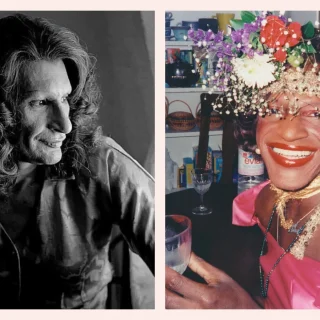|
Getting your Trinity Audio player ready...
|
Starting in ancient times and continuing through the modern age, poetry has thrived as one of the most popular forms of expression. From the horrors of war and racism to the familiarity of the New England seaside, influential poets like Pablo Neruda, Maya Angelou, and Robert Frost could seemingly find inspiration in almost anything.
Decades later—and for some, even centuries—their writings continue to spark our imaginations.
Homer
He is presumed to be the author of Iliad and Odyssey.
Very little is known of him beyond the fact that his was the name attached in antiquity by the Greeks themselves to the poems.
He is also considered one of the most influential authors in the widest sense, for the two epics provided the basis of Greek education and culture throughout the Classical age and formed the backbone of humane education down to the time of the Roman Empire and the spread of Christianity.
The question of by whom, when, where and under what circumstances the Iliad and Odyssey were composed continues to be debated. Scholars remain divided as to whether the two works are the product of a single author.
Ralph Waldo Emerson
Ralph Waldo Emerson( May 25, 1803 to April 27, 1882). He went by his middle name Waldo.
Originally ordained in the Unitarian Church, Emerson. He began to disagree with the church methods and gradually moved away from its belief and activities.
He took up writing and lecturing instead, becoming a founding figure of the Transcendentalism movement in New England with early works such as 1836’s “Nature.”
He influenced the American romantic movement, and his work has greatly influenced the thinkers, writers and poets that followed him. “In all my lectures”, he wrote, “I have taught one doctrine, namely, the infinitude of the private man.”
Edgar Allan Poe
Poe began writing poems during adolescence. Surprisingly, given how famous his works have become, he initially received little profits from his writing and had to support himself by editing magazines in Philadelphia and New York City.
Poe, originally from Boston, is best known for his 1845 poem “The Raven,” which explores themes of death and loss akin to his collection of other horror and mystery tales like “The Cask of Amontillado” and “The Tell-Tale Heart.”
Walt Whitman
Walt Whitman was born May 31, 1819, West Hills, Long Island, New York, U.S and died on March 26, 1892, Camden, New Jersey. He was an American poet, journalist, and essayist whose verse collection Leaves of Grass, first published in 1855, is a landmark in the history of American literature.
One of the poems in the collection, “I Sing the Body Electric,” went on to inspire a short story by author Ray Bradbury, an episode of the science-fiction TV show The Twilight Zone, and even a 2012 song by Lana Del Rey.
Emily Dickinson
Emily Dickinson was a romantic, transcendentalist poet in the nineteenth century in the United States. Emily Dickinson’s biography displays the influences and forces that affected her writing. She was born December 10, 1830, in Amherst, Massachusetts.
During her life, she was seen as a bizarre and strange person because she rarely socialized with people in the community and mostly wore white clothing. She also rarely left her house.
Emily Dickinson has famous works about many different topics. For instance, she wrote a poem entitled “Because I Could Not Stop For Death.” Another famous poem is “I’m Nobody! Who are you?
William Butler Yeats
William Butler Yeats was an Irish poet, dramatist, and prose writer, one of the greatest English-language poets of the 20th century.
The literary career of W.B. Yeats began in 1885 when his poetry was published for the first time in the Dublin University Review. The poem in question was called ‘The Island of Statues’. This was a remarkable achievement for Yeats at the time and acted as the springboard for his whole writing career.
Throughout his more than 50-year-long career, Yeats produced over 100 works of poetry, drama and prose. For many people, Yeats is best remembered for his most famous poem ”The Second Coming,” which describes a potential apocalyptic event. It was likely inspired both by the aftermath of the First World War and by Yeats’ own idiosyncratic beliefs about history.
Robert Frost
Robert Frost (1874-1963) was an American poet famous for his mastery of depicting rural life and endowing it with symbolic significance relevant to the human condition.
Despite the lack of recognition and fame in early adulthood, Frost continued to write poetry and eventually became America’s most decorated poet. He was awarded four Pulitzer Prizes and the Congressional Gold Medal for his poetry.
Robert Frost’s poetry is primarily known for its eloquent descriptions of nature and rural life in New England. He held traditional poetic forms in high regard and pursued mastery of them throughout his literary career.
Pablo Neruda
Neftalí Ricardo Reyes Basoalto, who would later become known by the pen name Pablo Neruda, was born on July 12, 1904 in Parral, Chile but spent most of his childhood in Temuco, Chile.
He was a 20th-century Chilean poet considered by most to be the greatest writer of Spanish language poetry of all time.
His most famous works include Veinte poemas de amor y una cancíon desesperada (Twenty Love Poems and a Song of Despair) and Cien sonetos de amor (100 Love Sonnets). Known as ”the people’s poet” and ”the greatest Latin American poet since Darío,”
Maya Angelou
Maya Angelou was an American author, actress, screenwriter, dancer, poet and civil rights activist best known for her 1969 memoir, I Know Why the Caged Bird Sings, which made literary history as the first nonfiction bestseller by an African American woman.
Angelou received several honors throughout her career, including two NAACP Image Awards in the outstanding literary work (nonfiction) category, in 2005 and 2009.
Angelou was born on April 4, 1928, in St. Louis, Missouri.
Angelou’s poems are often about love, loss, loneliness, and experiences with racism.
Angelou was also only the second poet—after Frost—to perform at a presidential inauguration, reciting “On the Pulse of Morning” at Bill Clinton’s big day in 1993.
Sylvia Plath
Sylvia Plath (1932 – 1963) was an American poet, novelist, and short story writer.
She is credited with advancing the genre of confessional poetry and is best known for The Colossus and Other Poems (1960), Ariel (1965), and The Bell Jar, a semi-autobiographical novel.
In the ensuing years her work attracted the attention of a multitude of readers, who saw in her singular verse an attempt to catalogue despair, violent emotion, and obsession with death.




